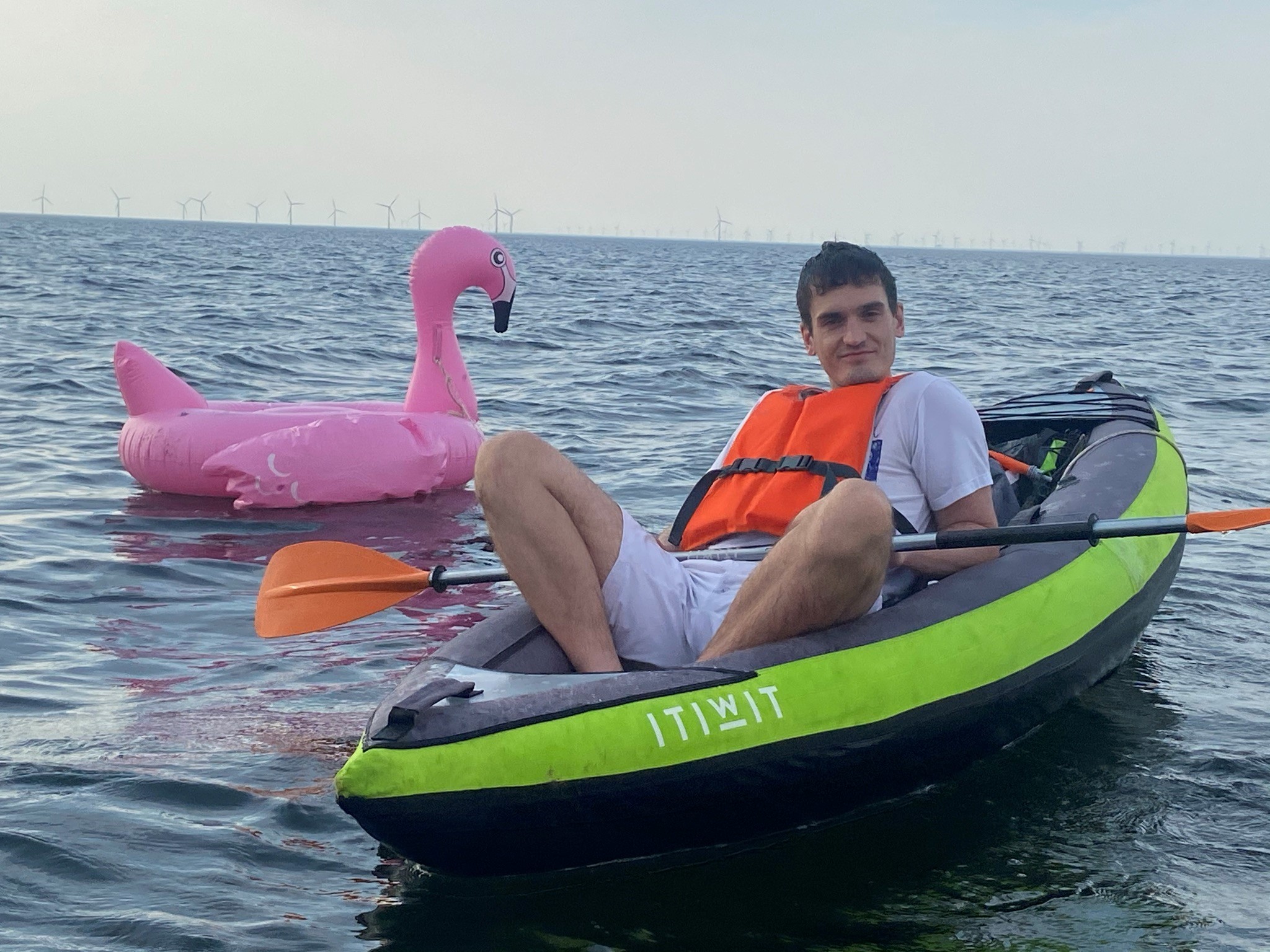
Two kayakers being blown out into the Irish Sea were able to call for lifeboat help thanks to Vodafone's far-ranging mobile signal. But it could have been much worse...
Adrift in the sea, wet and weary, Tony Rice was starting to worry. He and his cousin Dean Savage were in a pair of inflatable kayaks off the coast of north Wales. They’d paddled out during the day to admire the Rhyl Flats offshore wind farm. Getting back was proving impossible.
Despite being able to see the bright lights of the ferris wheel in the resort town of Towyn, they were no closer to dry land after six fruitless hours of paddling – and night was falling.
“We kept aiming for the ferris wheel, we could see it lit up, but were getting no closer,” Tony recalls. “Then the fairground shut and the lights went off – that’s when we knew were in trouble.
“We decided to get in the same boat to try and double our efforts and finally get to shore. We made a bit of progress, but my arm and shoulder were both fatigued. I was unable to continue paddling and reached for my phone.”
Fortunately for Tony and Dean, his iPhone 11 was still in range of the nearest Vodafone mast so he was able to contact the RNLI (Royal National Lifeboat Institution) for help. The lifeboat, crewed by volunteers, came out and picked them up, earning the undying thanks of the two hapless kayakers.
Tony had been at risk of hypothermia, the RNLI said, as he’d been dressed solely for the heat of that unusually warm Bank Holiday afternoon rather than for the chill of a night out at sea. The RNLI also told him that their flat-bottomed inflatable kayaks were not designed for the deep waters of the sea and were thus no match for the strong offshore winds which had turned against them.
While Tony had been reasonably calm at the time, feeling more embarrassed than frightened about having to call for help, he realised only later how much danger they’d been in.
“We were very lucky that Vodafone’s reception was strong enough for us to call for help. Without it, the next stop would have been Dublin!”
Be prepared
The RNLI always advises kayakers and other leisure boaters to carry other means of signalling for help, such as a radio and red flares, as you shouldn’t rely on mobile reception alone. A mobile signal can reach 15-20 miles offshore in some circumstances, but if there isn’t a mast near the coastline where you are you might not get any signal at all, even close to shore.
So it pays to plan your trip with safety in mind on the understanding that strong tides, winds and changeable weather conditions can pose significant danger to underprepared sea goers.
Expanding coverage
While Vodafone’s network already covers the overwhelming majority of the UK’s population, the company is working to bring coverage to those remaining areas of poor or non-existent coverage. The Shared Rural Network (SRN) project, for example, aims to bring mobile coverage (from at least one operator) to 95% of the entire UK landmass by the end of 2026.
In north Wales, for example, 4G coverage from all four operators will go up from 63% to 83% as a result of the SRN – subject to acquiring the necessary planning permissions in the communities set to benefit.
Outside of the SRN, Vodafone is also bringing coverage to some rural locations using masts built with cutting-edge OpenRAN technology. While OpenRAN will be used in rural and urban locations alike, Vodafone is rolling it out first in the countryside.
As for Tony Rice and his cousin, the experience hasn’t put them off kayaking, although they will be more careful next time. Although his iPhone 11 was badly damaged by the salty sea water, he was more disappointed that he couldn’t save the inflatable pink flamingo they found bobbing in the open waters.
“It’s a shame – it would’ve been our mascot!”
Stay up-to-date with the very latest news from Vodafone by following us on Twitter and signing up for News Centre website notifications.
![View over countryside and ploughed fields[Adobe Stock] stock image of the countryside near Combe, Berkshire](https://www.vodafone.co.uk/newscentre/app/uploads/2024/04/View-over-countryside-and-ploughed-fieldsAdobe-Stock.jpg)
![Falling Dripping Water Drop[Adobe Stock] Falling Dripping Water Drop[Adobe Stock]](https://www.vodafone.co.uk/newscentre/app/uploads/2024/04/Falling-Dripping-Water-DropAdobe-Stock.jpg)

![Dawlish Sunrise [Adobe Stock] resized stock photo of Dawlish in Devon](https://www.vodafone.co.uk/newscentre/app/uploads/2024/04/Dawlish-Sunrise-Adobe-Stock-resized.jpg)
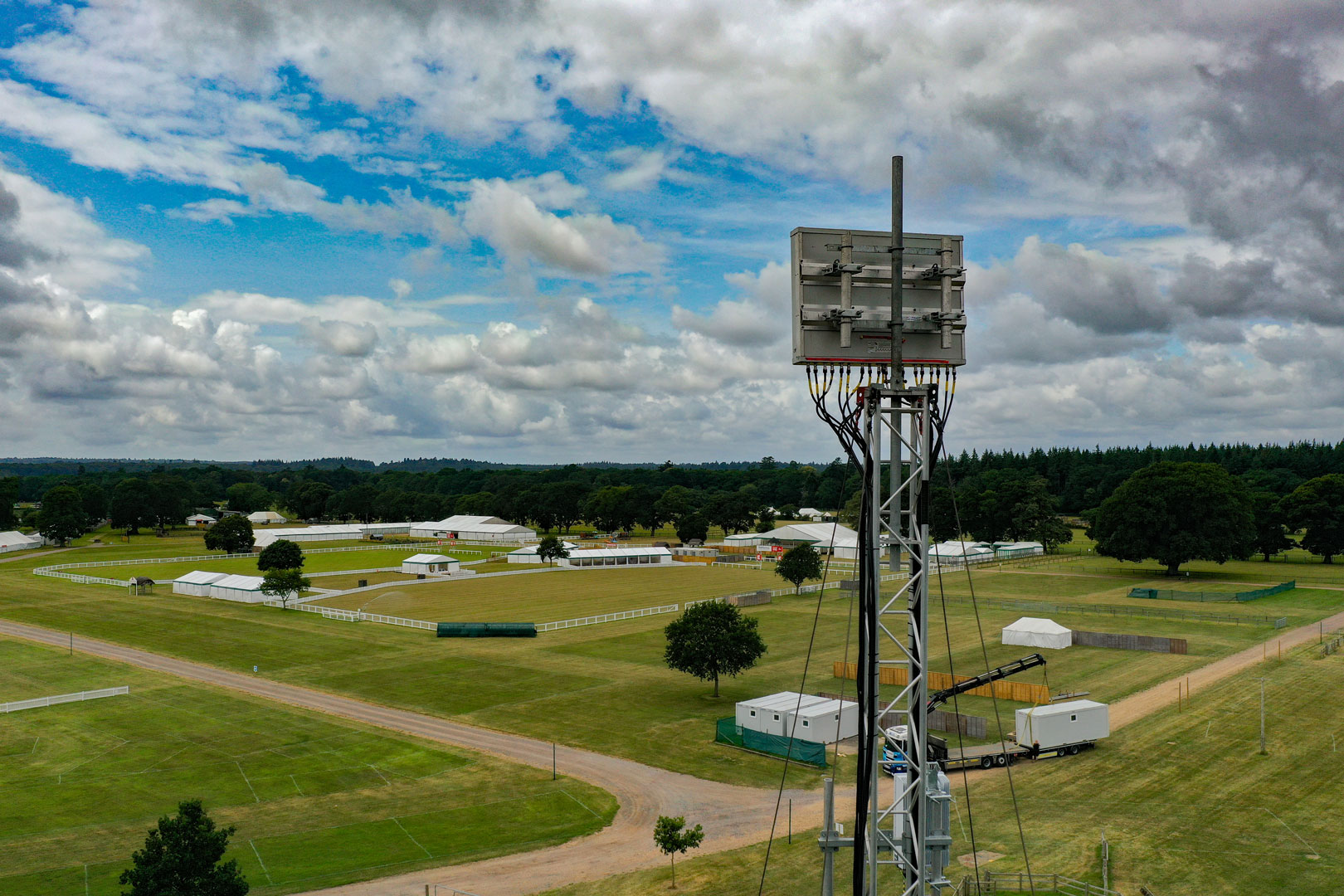
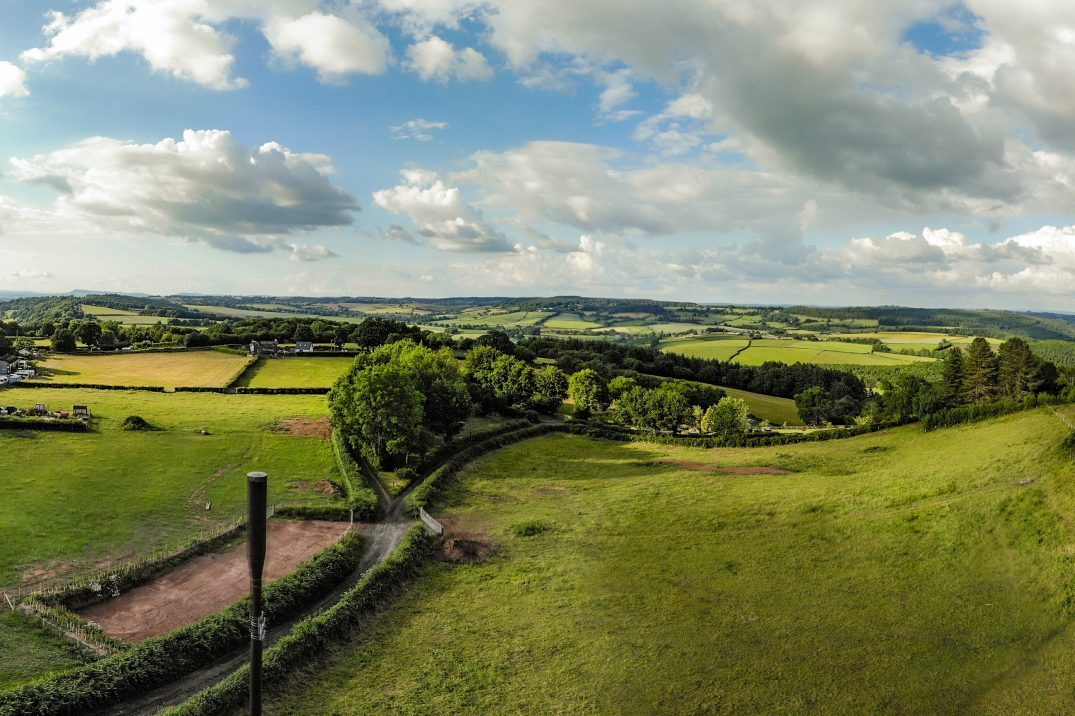
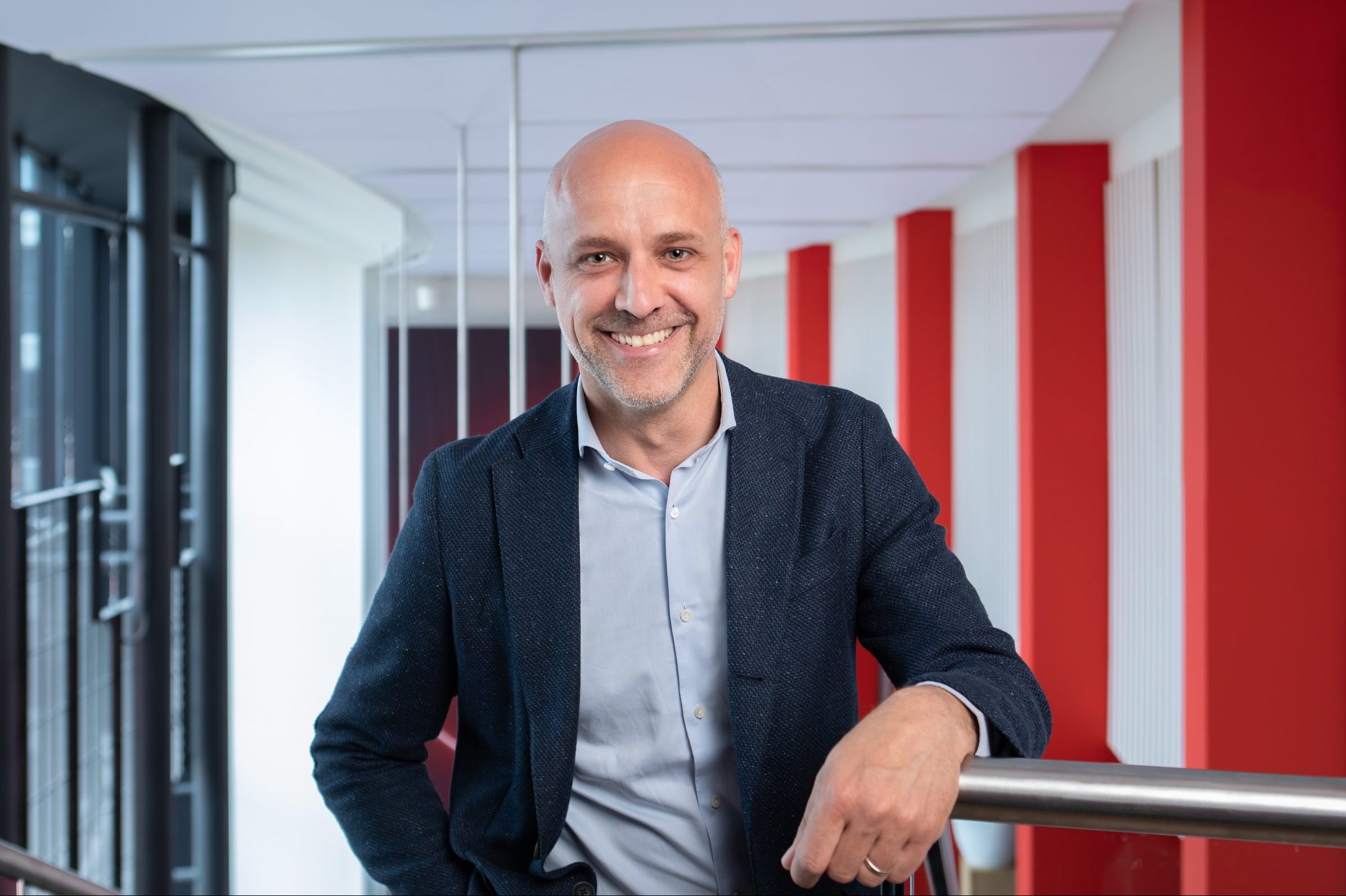
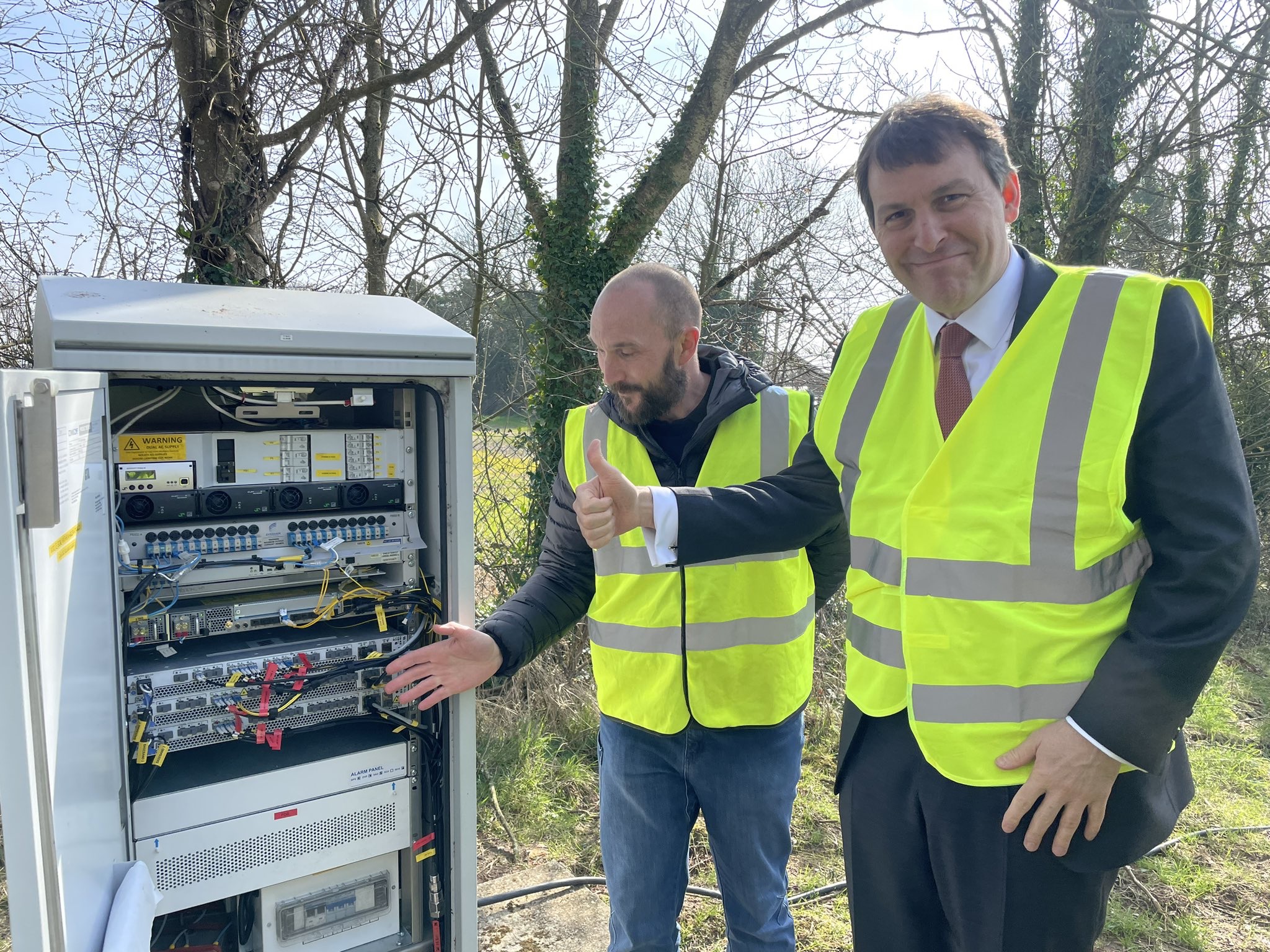
![A playful rabbit wearing a vibrant coat, excitedly holds a phone[Adobe Stock] an AI-generated image of a rabbit using a smartphone while surrounded by Easter eggs](https://www.vodafone.co.uk/newscentre/app/uploads/2024/03/A-playful-rabbit-wearing-a-vibrant-coat-excitedly-holds-a-phoneAdobe-Stock.jpg)
![Statue of Sir Tasker Watkins at the Cardiff millennium stadium[Adobe Stock] stock photo of the Cardiff Principality Stadium](https://www.vodafone.co.uk/newscentre/app/uploads/2024/03/Statue-of-Sir-Tasker-Watkins-at-the-Cardiff-millennium-stadiumAdobe-Stock.jpg)